Scared of flying? Here’s how to change that
Travelling is one of life’s greatest gifts: the world is opened up to you, and you are exposed to all sorts of new cultures, traditions, and people. However, such experiences must, more often than not, be preceded by plane rides – after all, there’s no quicker way to cross the globe nowadays than by flying. For some, this is not a problem; for others (an estimated 25% of the population), it’s a cause of crippling fear.
Aviophobia, the fear of flying, can be a debilitating phobia to live with, and even those like me, who travel multiple times a year, will likely get a sense of impending doom each time they set foot on an aeroplane. Good news, though: it doesn’t have to be like that! Below, I’ve listed all the methods I have used to overcome this fear (for the most part, anyway), and which I hope will help some of you, too.
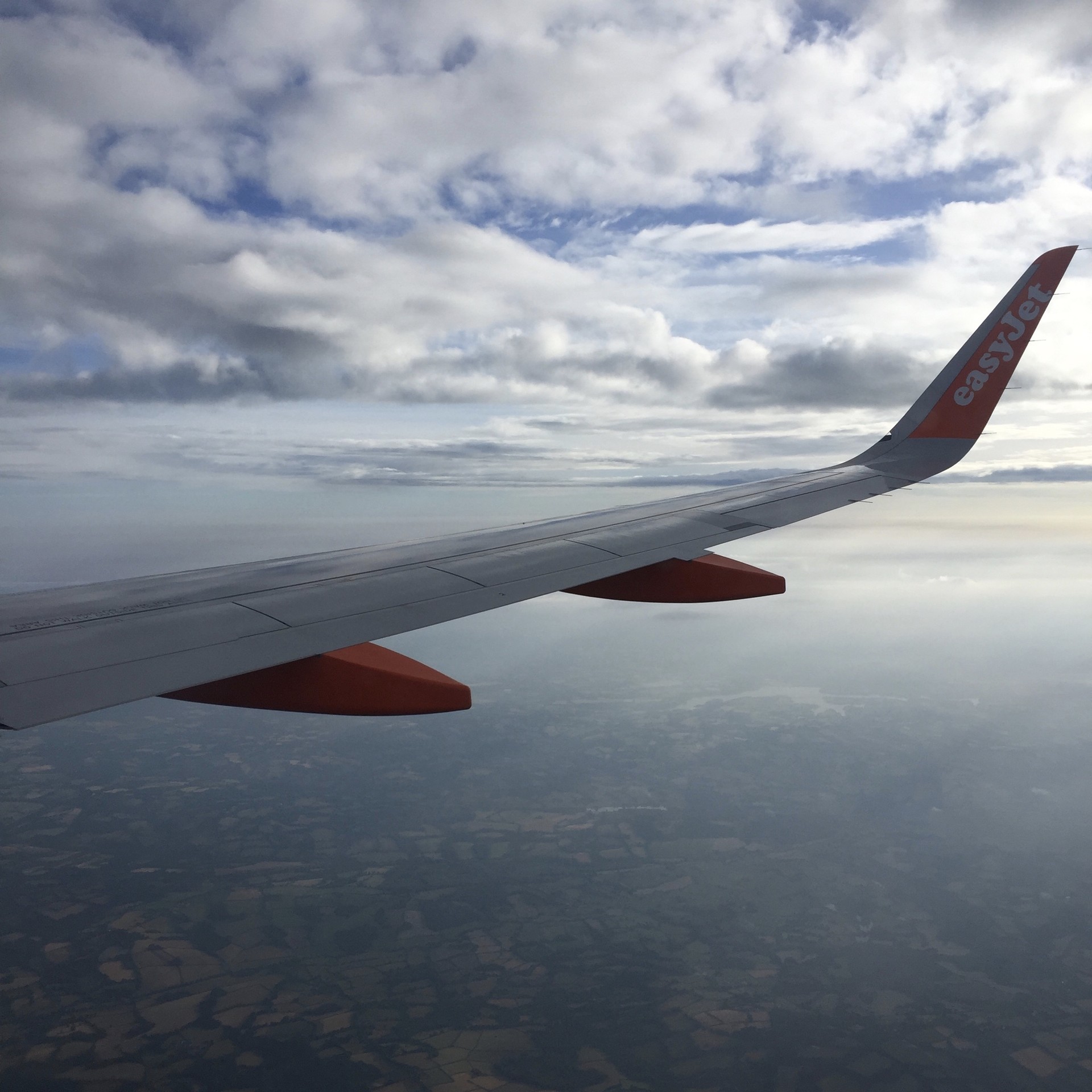
Before you fly
Getting over a fear starts before you expose yourself to the source, so make sure to follow these steps in the days leading up to your next flight.
Do your research
A quick Google search will confirm a fact that many know to be true, but few are willing to accept: that flying is the safest form of travel. You’ll find all sorts of hilarious analogies to ease your mind (FYI, you’re more likely to be kicked to death by a donkey than die in a plane crash!), and will soon come to realise just how much care is taken to ensure that passengers have a smooth journey.
Along with this, it’s worth remembering that pilots must train for an average of 1500 hours to earn the right to fly commercial planes, and that stewards and stewardesses must go through a very competitive and arduous application process in order to be selected to work for an airline. You can rest easy, then, knowing that you’ll be in the hands of people who really know what they’re doing.
And, if you're feeling particularly nerdy, why not try to learn a bit about the science behind planes? I still can't quite wrap my head around how exactly these great metal containers can even leave the ground – let alone rise thousands of feet above it – and I think I'd feel a lot calmer if I had anidea of how it all worked.
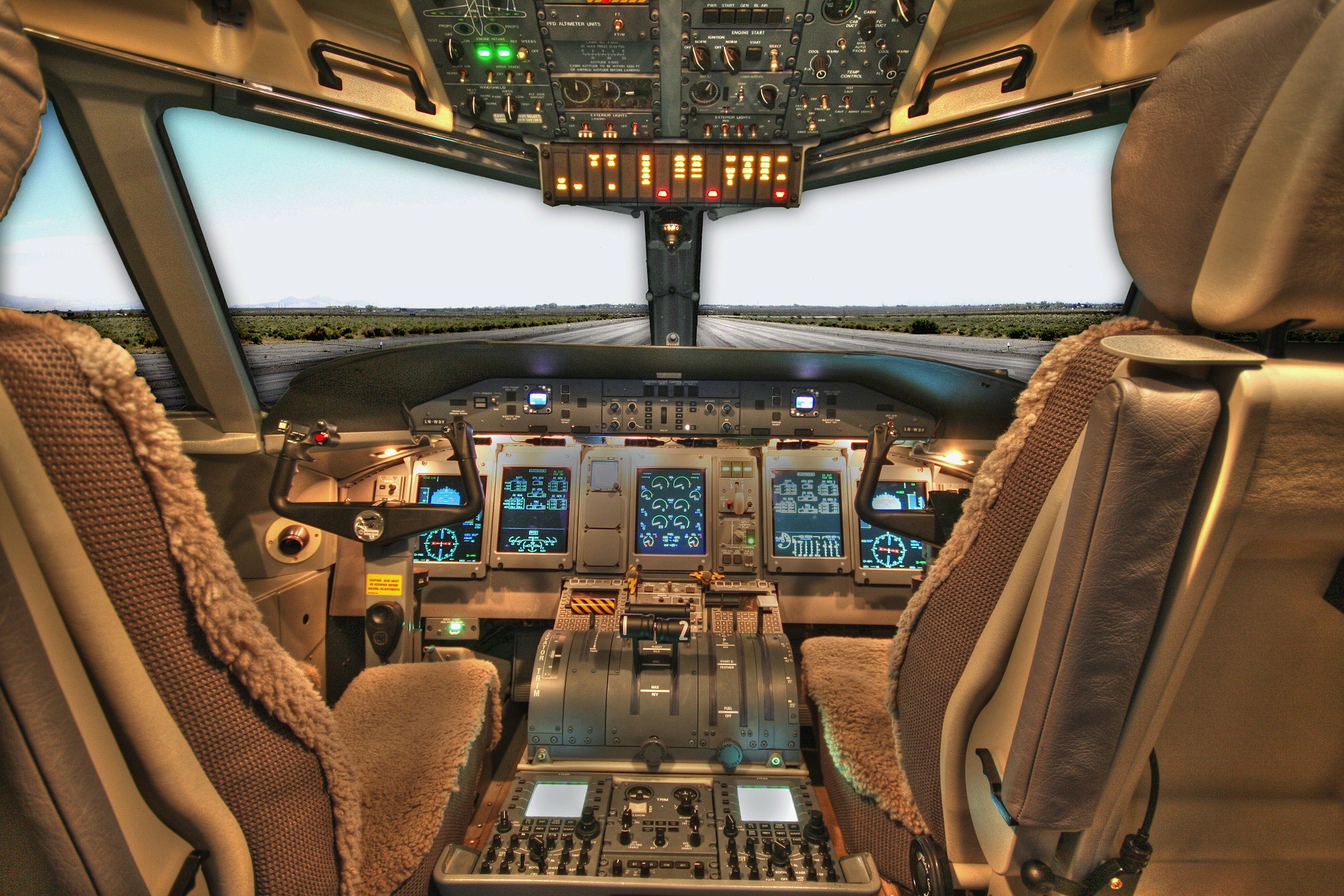
Think back to your previous journeys
If you’re reading this post, you’ve survived all your previous plane rides, so congratulations, and let that be a sign that you’ve got nothing to worry about! Even my worst experience with turbulence resulted in nothing more than a bit of anxiety for me, and a mild burn for a stewardess who spilled a cup of coffee onto herself when the plane dropped. Think back over all your journeys on planes, and you’ll likely realise that even the most traumatic ones didn’t leave you with so much as a graze.
Know that turbulence is normal, and nothing to be afraid of
If there’s any turbulence on a flight – worst still, if the seatbelt sign is turned on – you’ll be sure to find me cowering in my seat. I’m not sure I’ll ever fully get over this side of my aviophobia, but when such moments do occur, I find that it helps a lot to think of the sky as a bumpy road. If you were in a car, you wouldn’t blink twice if you encountered a small pothole, so try to think of air pockets in these terms. You may even find – like some of my friends – that you eventually start to positively enjoy turbulence: after all, you’re basically getting a complimentary rollercoaster ride!

Choose your seat
Sometimes, something as simple as your position on a plane can make a huge difference to how safe you feel. If you like being able to see what’s going on at all times, pick a window seat; if you’d prefer to forget just how high up you are, go for one in the aisle. It’s also worth noting that the back of the plane is supposed to be the safest section.
In addition to this, if you’re travelling with friends or family, you may feel more relaxed sitting next to them. Book your tickets together, or politely explain the situation to whoever is randomly assigned to the seat next to yours. They’ll more than likely be happy to swap!
Steer clear of plane-related news
The last thing you want just before a flight is to read a story about a recent plane crash, so try to avoid this sort of news as much as possible. If you can’t resist finding out more about a particular incident, remember that the only reason it’s made headlines is because accidents like this are so out of the ordinary.
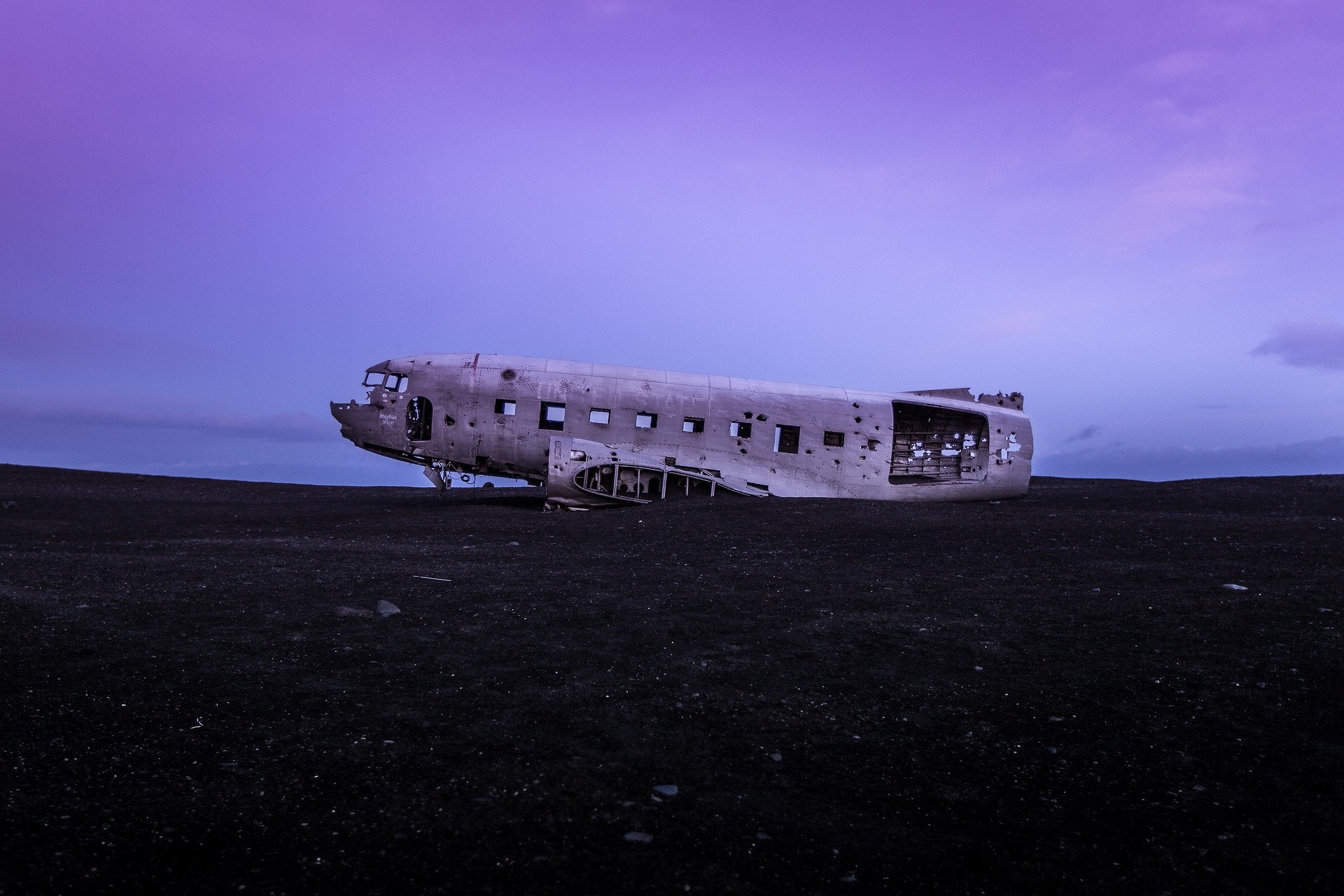
Think of how convenient flying is
As I said in the introduction, flying is almost always the quickest way to get from one place to another, and, more often than not, also the cheapest. If you’re seriously considering another form of transport – boat, for example – think carefully about whether you’d prefer a short but anxiety-inducing journey, or a much longer but safer-feeling one. You may well decide that it’s more tempting just to get things over and done with: after all, that way you’ll have more time to spend at your destination!
Consider therapy or counselling
Still not feeling assured? It might be worth considering some form of therapy or counselling. You may find that your phobia has a deeper cause, and you’ll have a professional to guide you through overcoming it. If you don't have the time and/or money for this sort of treatment, there are also plenty of free resources available online.
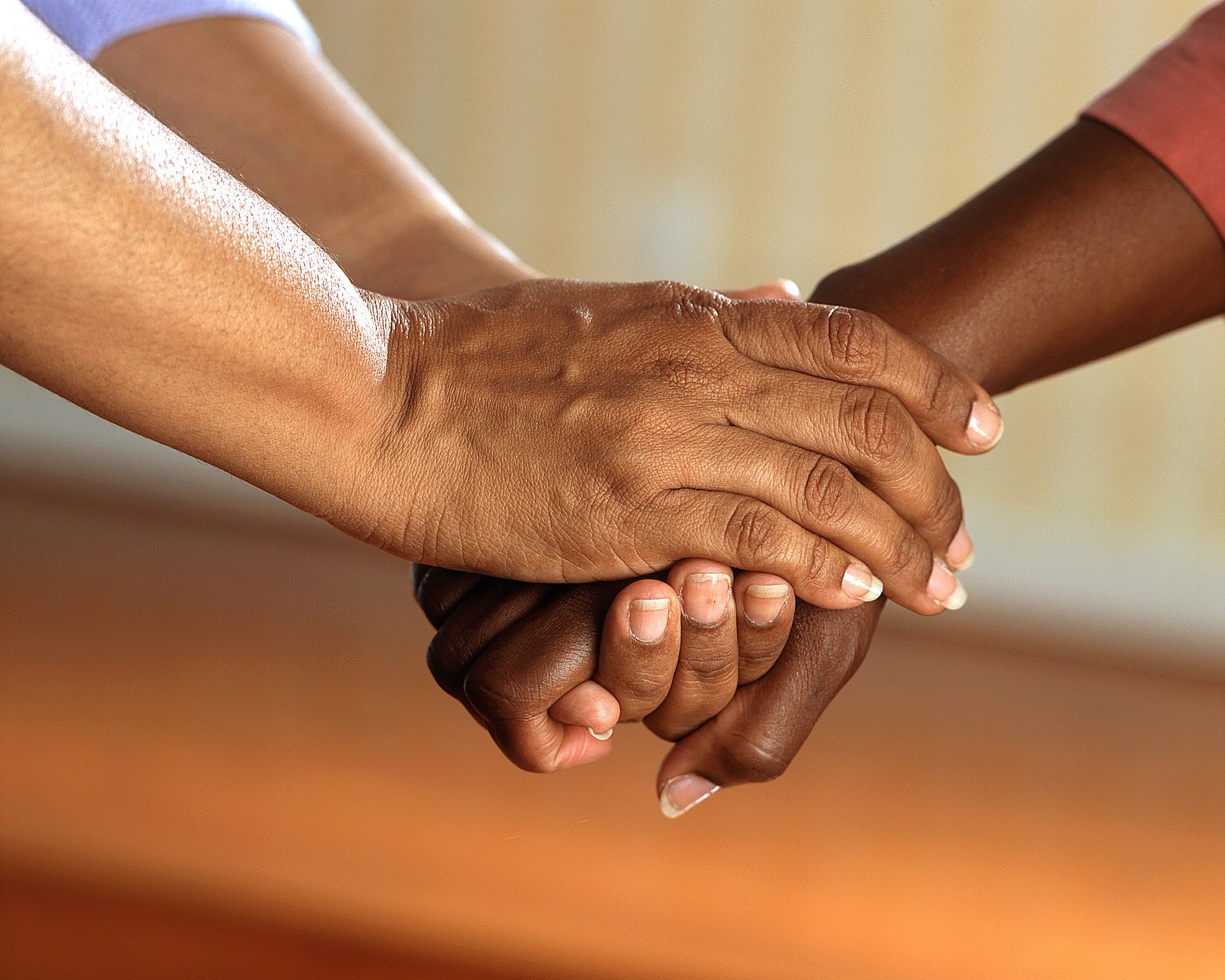
When you fly
If you’ve followed the tips above, you should be feeling a bit less anxious when the big day finally rolls around. Below is my advice for dealing with the flight, itself.
Arrive at the airport with plenty of time to spare
Want to stay calm on the day of your flight? Make sure to arrive at the airport long before you're set to depart. There’s nothing worse than running frantically to your gate, so make sure to leave plenty of time –between 1.5 and 2 hours would be ideal – just in case there are long queues either at the baggage drop-off point or when you're going through security. Not only will you feel more physically relaxed, but you’ll also be mentally at peace, making it easier to sit back and unwind once you’re on the plane. Plus, this way you may have time to loosen up with a quick drink before your flight.

Meditate or do breathing exercises
If, for whatever reason, your mind is still racing once you’re onboard, try meditating or doing breathing exercises to calm yourself down. There are many great apps to guide these sorts of sessions (Calm is a particular favourite of mine), and if you’re on a long-haul flight, you may well find that your airline provides a podcast on this topic.
Familiarise yourself with your plane’s safety features
It’s very unlikely that you’ll ever need to make use of any plane’s safety features, but sometimes familiarising yourself with the basics can help you feel more at ease. Make sure to listen to the safety demonstration before takeoff – headphones out! – and relax in the knowledge that if the worst comes to the worst, you’ll be prepared.
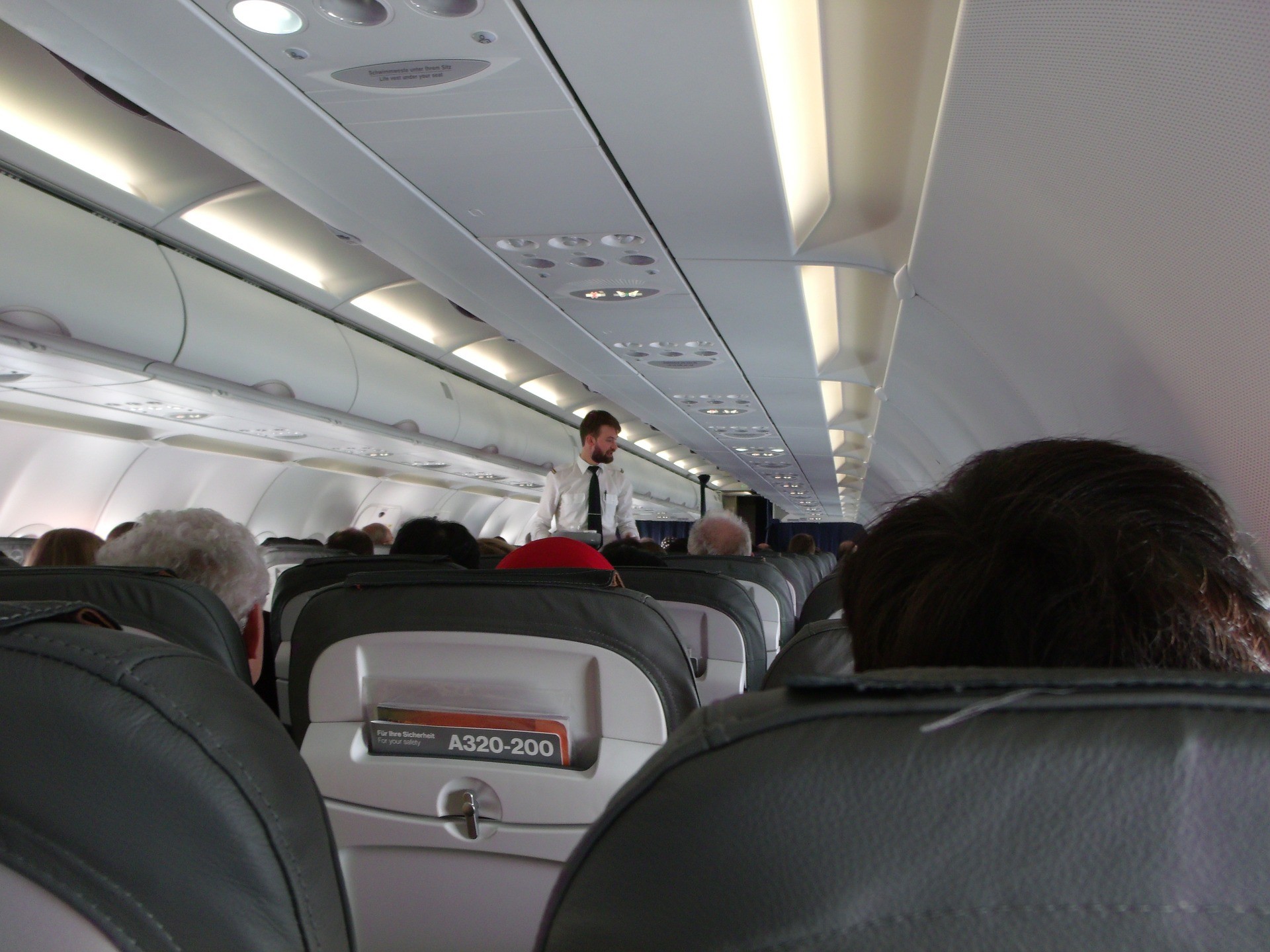
Turn on your air vent
If you have the tendency to feel claustrophobic inside planes, make sure to turn on your air vent as soon as your sit down. This will make you feel more refreshed (great if you're on a stuffy plane!), and give you the sensation of breathing in fresh air.
Distract yourself
Want the flight to pass as quickly as possible? Distract yourself with music (I like to turn mine right up to block out all the worrying noises planes make!), books, games, films, puzzle books, or whatever you think will help you to zone out and forget where you are. Alternatively, strike up conversation with the person sitting next to you. They'll almost certainly help you to keep your mind off the situation, and you never know: they may turn out to be your soulmate!

Try to sleep
If you don’t think books or films will be enough to distract you, why not try getting a bit of shut-eye? After all, you’ll probably be glad to have to a bit of extra energy once you’ve landed. Pop a couple of sleeping tablets (keeping to the recommended dosage, of course), and you’ll be at your destination before you know it! Along with this, try to avoid caffeine just before flying. Not only will it make sleeping more difficult, but also it will probably send your anxious brain into overdrive.
Make the most of your stewards
Flight attendants are there to help you, so if you’re a nervous flyer, let them know before you take off, and they’ll make sure to look after you and put your mind at ease. If you experience turbulence during the flight, glance over at them, and they’ll likely give you a reassuring nod to let you know that all is well. These people will have experienced countless plane rides, so if they don’t look fazed, you’ll know that you have nothing to worry about!
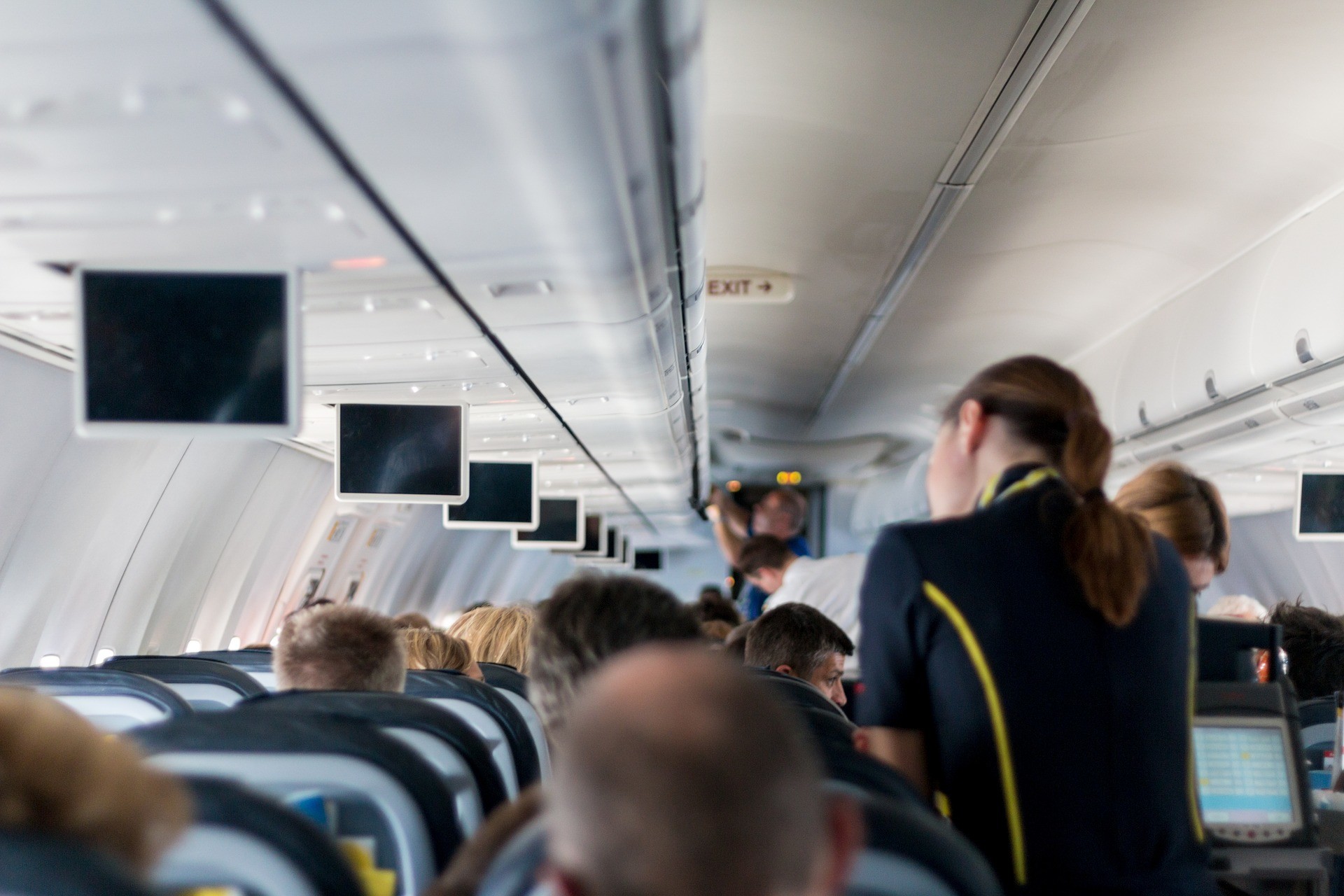
Focus on your end destination
Finally, remember that flying is your key to seeing the world! You may not have the most pleasant journey, but it will be so worth it once you’ve landed. Try to focus on the fact that you’re moving ever closer to your end destination, and you should hopefully feel a bit happier about your current situation.
That’s all, folks!
So there we have it: my fifteen tips for nervous flyers. Aviophobia is a difficult fear to deal with, especially if you’re a frequent traveller, but it is by no means an unconquerable one. With just a few adjustments to your behavioural and thought patterns before and during flights, you’ll be able to brave even the shakiest of turbulence, and travel to the furthest corners of the globe with ease.
Don't let fear get the best of you: the world is your oyster, and it's waiting to be discovered!
Photo gallery
Content available in other languages
Want to have your own Erasmus blog?
If you are experiencing living abroad, you're an avid traveller or want to promote the city where you live... create your own blog and share your adventures!
I want to create my Erasmus blog! →












Comments (0 comments)